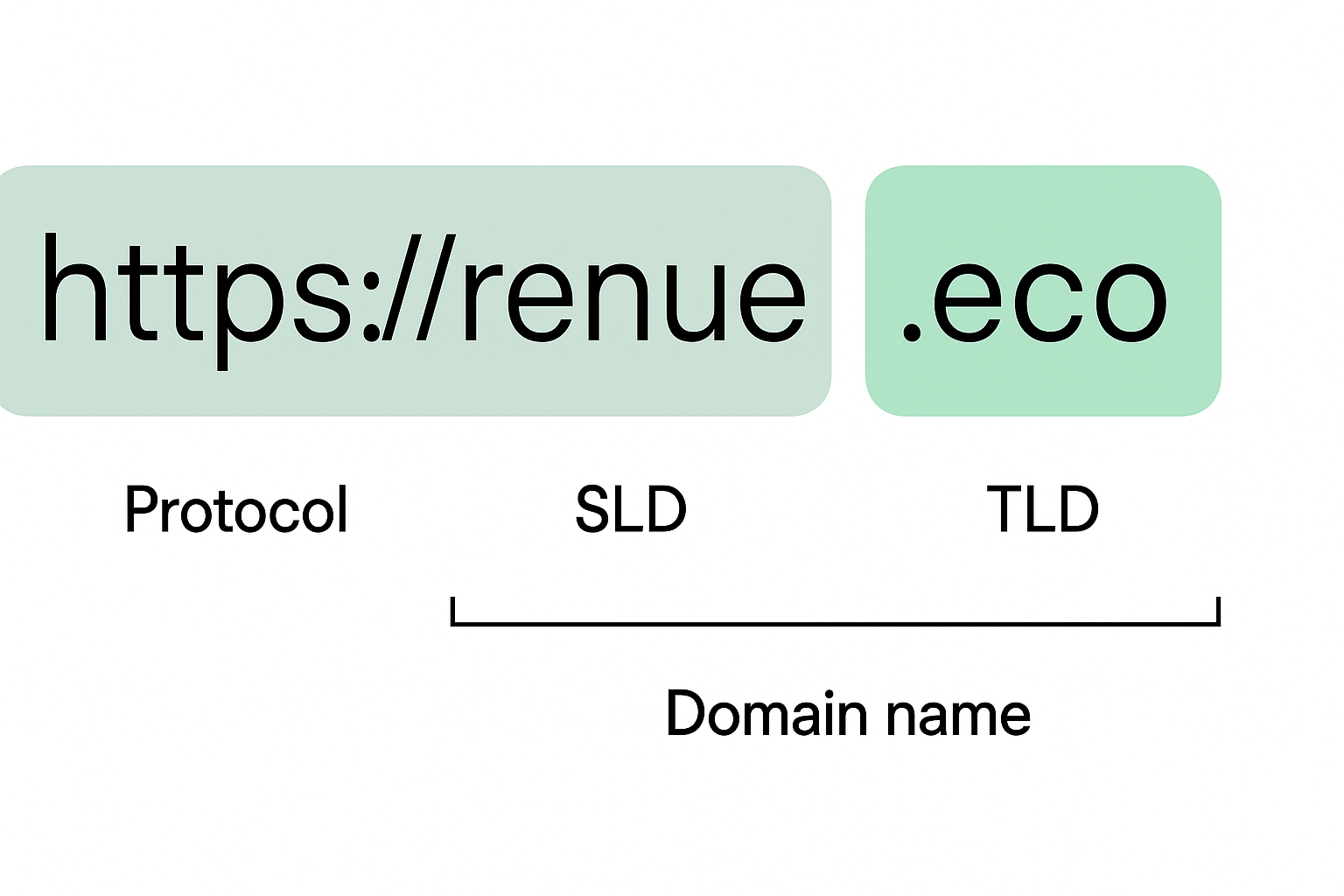When you visit renue.eco, you’re not just seeing a web address—you’re seeing a statement of our values.
What Is a Top-Level Domain (TLD)?
Every URL you visit consists of key components that serve specific functions:
- Protocol: This defines how information is transmitted. At Renue, we use HTTPS, which includes SSL encryption to ensure that all data shared on our platform—between you, buyers, and sellers—is secure and private.
- Domain Name: This is the identity of the website and includes:
- Second-Level Domain (SLD) – in our case, “renue”
- Top-Level Domain (TLD) – the extension “.eco”
Together, these form our full domain: renue.eco
What Does .eco Stand For?

The .eco domain extension is unlike most others. It’s a restricted TLD, meaning it’s only available to companies and organisations committed to sustainability and positive environmental impact.
Before receiving approval, domain applicants must:
- Pledge to support positive change for the planet
- Share their environmental goals and actions
- Align with the .eco community standards
The .eco domain is operated by Big Room Inc. and supported by over 40 respected environmental groups including WWF, Ocean Conservancy, and Greenpeace.
Even more impressively, .eco is the first domain extension to be PAS 2060 certified as carbon neutral—a perfect fit for a platform like Renue, which exists to amplify sustainable brands and ethical businesses across Europe and beyond.
Why It Matters
At Renue, we’re not just another marketplace—we’re building a community-led digital ecosystem for sustainable living. Every decision we make, from technology to partnerships, aligns with our vision of a more ethical and responsible future.
Choosing a .eco domain is our way of showing that we walk the talk.
📚 Sources
- go.eco
- Fung, A. P., & Cheung, K. W. (2010). SSLock: sustaining the trust on entities brought by SSL
- Henman, P., & Graham, T. (2020). The structure of the online state: Towards a web ecology perspective

